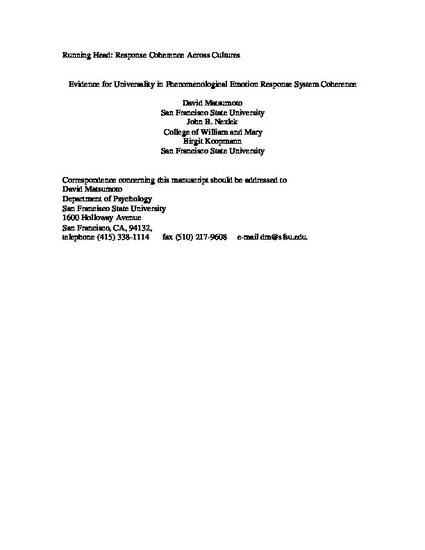
The authors reanalyzed data from Scherer and Wallbott's (Scherer, 1997b; Scherer & Wallbott, 1994) International Study of Emotion Antecedents and Reactions to examine how phenomenological reports of emotional experience, expression, and physiological sensations were related to each other within cultures and to determine if these relationships were moderated by cultural differences, which were operationally defined using Hofstede's (2001) typology. Multilevel random coefficient modeling analyses produced several findings of note. First, the vast majority of the variance in ratings was within countries (i.e., at the individual level); a much smaller proportion of the total variance was between countries. Second, there were negative relationships between country-level means and long- versus short-term orientation for numerous measures. Greater long-term orientation was associated with lowered emotional expressivity and fewer physiological sensations. Third, at the individual (within-culture) level, across the 7 emotions, there were consistent and reliable positive relationships among the response systems, indicating coherence among them. Fourth, such relationships were not moderated by cultural differences, as measured by the Hofstede dimensions.

Copyright © 2007 American Psychological Association. This article may not exactly replicate the final version published in the APA journal. It is not the copy of record.
http://dx.doi.org/10.1037/1528-3542.7.1.57